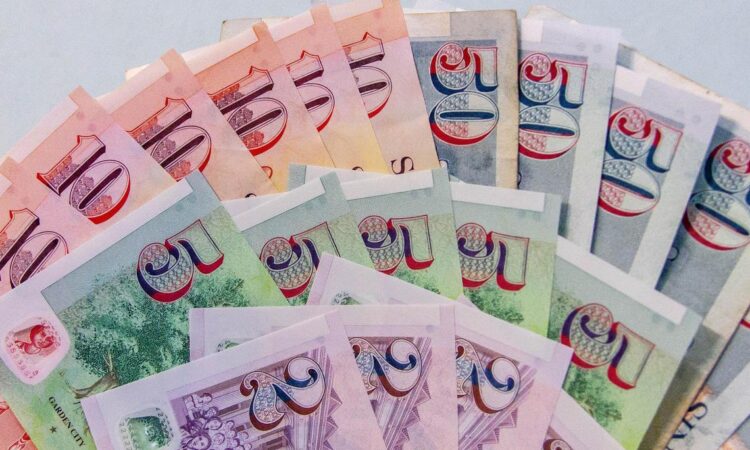T-bills remain an option for low-risk portion of an investment portfolio as yields hold around 3%

SINGAPORE – Private investor Stephen Chen has been buying Singapore Treasury bills (T-bills) since July 2022 after he heard about these short-term government securities from a friend.
Mr Chen, who manages his personal and family investments, has now slowed his purchases as yields started drifting lower, but he will keep them in his portfolio.
Housewife Michelle Goh, 57, is another T-bill fan, having started buying them 2½ years ago.
She landed $19,000 worth at the cut-off yield of 2.99 per cent at the Jan 16 auction of six-month T-bills and will apply for more when her fixed deposits mature.
T-bills caught the attention of investors from all walks of life here in the second half of 2022, when cut-off yields started climbing close to 3 per cent.
Yields on six-month T-bills rose to a three-decade high of 4.4 per cent on Dec 8, 2022, and have been hovering around 3 per cent since.
It has been much the same for one-year T-bills, with yields hitting a three-decade high of 3.87 per cent on Jan 26, 2023.
The cut-off yield dropped to 2.71 per cent on Oct 17, 2024, but rose 0.24 percentage point to 2.95 per cent in the Jan 23 auction, the first one for one-year T-bills in 2025.
Mr Wong Di Ming, research analyst in the bond research team at Bondsupermart, expects the labour market in the US to remain strong and inflation to stay elevated, which means the US Federal Reserve will have to keep interest rates high to curb inflation.
He added that the market is pricing in only one rate cut of 25 basis points in 2025.
This is likely to keep short-term US Treasury yields at current levels, barring any significant changes in economic data, Mr Wong added.
He said: “As a result, we believe there is a strong likelihood that the six-month T-bills will hover around the 3 per cent level for at least the next six months.”
With a yield of around 3 per cent, and a triple-A credit rating for the Singapore Government, T-bills are a “solid alternative for investors seeking risk-free returns”, Mr Wong said.
Mr Kevin Teng, chief executive of Wrise Private Singapore, added that these short-term government securities continue to be a compelling alternative to holding cash.
Their yields are relatively higher than traditional savings accounts or fixed deposits, allowing investors to earn a better return on their cash.
Mr Teng added that T-bills “play a vital role in portfolio diversification”, where their low-risk attributes complement higher-risk investments, helping to reduce chances of making large losses at any one time.
Mr Chen, the private investor, said that besides T-bills, there are other low-risk options for parking cash, such as fixed deposits and money market funds.
He prefers T-bills over fixed deposits because “the major attraction is that the Singapore government credit is triple A” and he gets “relatively higher yields” than from a bank fixed deposit.
“T-bills are the very safe part of my portfolio. Nothing can go wrong,” Mr Chen added.
He secured an allocation of one-year T-bills in the Jan 23 auction.
The 2.95 per cent yield exceeded his expectations.
Madam Goh also prefers T-bills over fixed deposits.
She always goes for non-competitive bids, which means she does not specify the yield she wants, and is happy with whatever she gets from the auction.
Even then, the interest rate from the T-bills is always better than what she gets from a fixed deposit, she added.
Madam Goh did not bid for the one-year T-bill because she prefers to go for six-month ones.
Mr Chen said some retail investors may want to go for money market funds.
A money market fund is a type of unit trust that invests in low-risk instruments with maturities of less than a year.
Investors can liquidate their holdings and withdraw their money whenever they need to.
Most money market funds in Singapore invest in fixed deposits, government securities such as T-bills and Monetary Authority of Singapore bills, which retail investors do not have access to, and commercial paper.
Commercial paper is high-quality, short-duration unsecured debt issued by corporates that pay higher interest rates than government bonds.
Some money market funds here include the Fullerton SGD Cash Fund, the Phillip Money Market Fund, the LionGlobal SGD Money Market Fund and the Lion-MariBank SavePlus fund.
Mr Chen prefers to build and monitor his own portfolio because there is “an administrative charge” to be paid to the fund manager of the money market fund.
His funds that are maturing soon could be invested into T-bills, or put into other fixed-income securities such as investment-grade bonds, high-yield bonds or even private credit, where the returns are higher but so are the risks.
High-yield bonds are issued by companies with credit ratings that are below investment grade.
They offer higher interest rates to compensate investors for the increased risk of default.
Private credit is even riskier than high-yield bonds.
It refers to loans issued by a private entity and extended to privately held firms.
Join ST’s Telegram channel and get the latest breaking news delivered to you.
